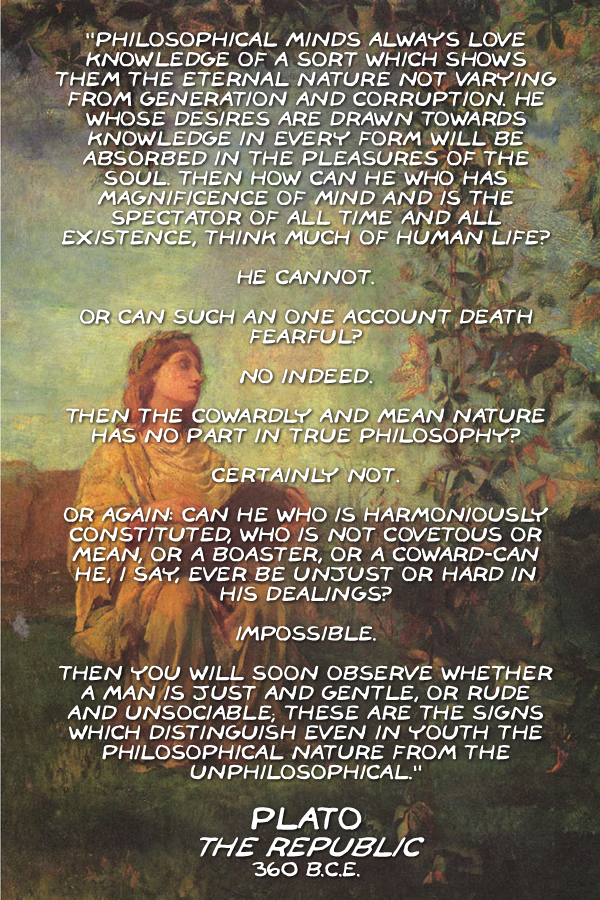Republished by Blog Post Promoter
Plato made the following statement 2,395 years ago. It seems that “the people” never change:
“The people have always some champion whom they set over them and nurse into greatness. …this and no other is the root from which a tyrant springs; when he first appears he is a protector. When the tyrant has disposed of foreign enemies by conquest or treaty, and there is nothing to fear from them, then he is always stirring up some war or other in order that the people may require a leader”.
“Plato Greek: (423 – 348 BCE) was a philosopher, as well as mathematician, in Classical Greece. He is considered an essential figure in the development of philosophy, especially the Western tradition, and he founded the Academy in Athens, the first institution of higher learning in the Western world. Along with his teacher Socrates and his most famous student, Aristotle, Plato laid the foundations of Western philosophy and science.
Plato’s dialogues have been used to teach a range of subjects, including philosophy, logic, ethics, rhetoric, religion and mathematics. His lasting themes include Platonic love, the theory of forms, the five regimes, and innate knowledge, among others. His theory of forms launched a unique perspective on abstract objects, and led to a school of thought called Platonism.”
READ PLATO’S MOST INFLUENTIAL THOUGHT IN “THE REPUBLIC”
https://www.gutenberg.org/files/1497/1497-h/1497-h.htm

